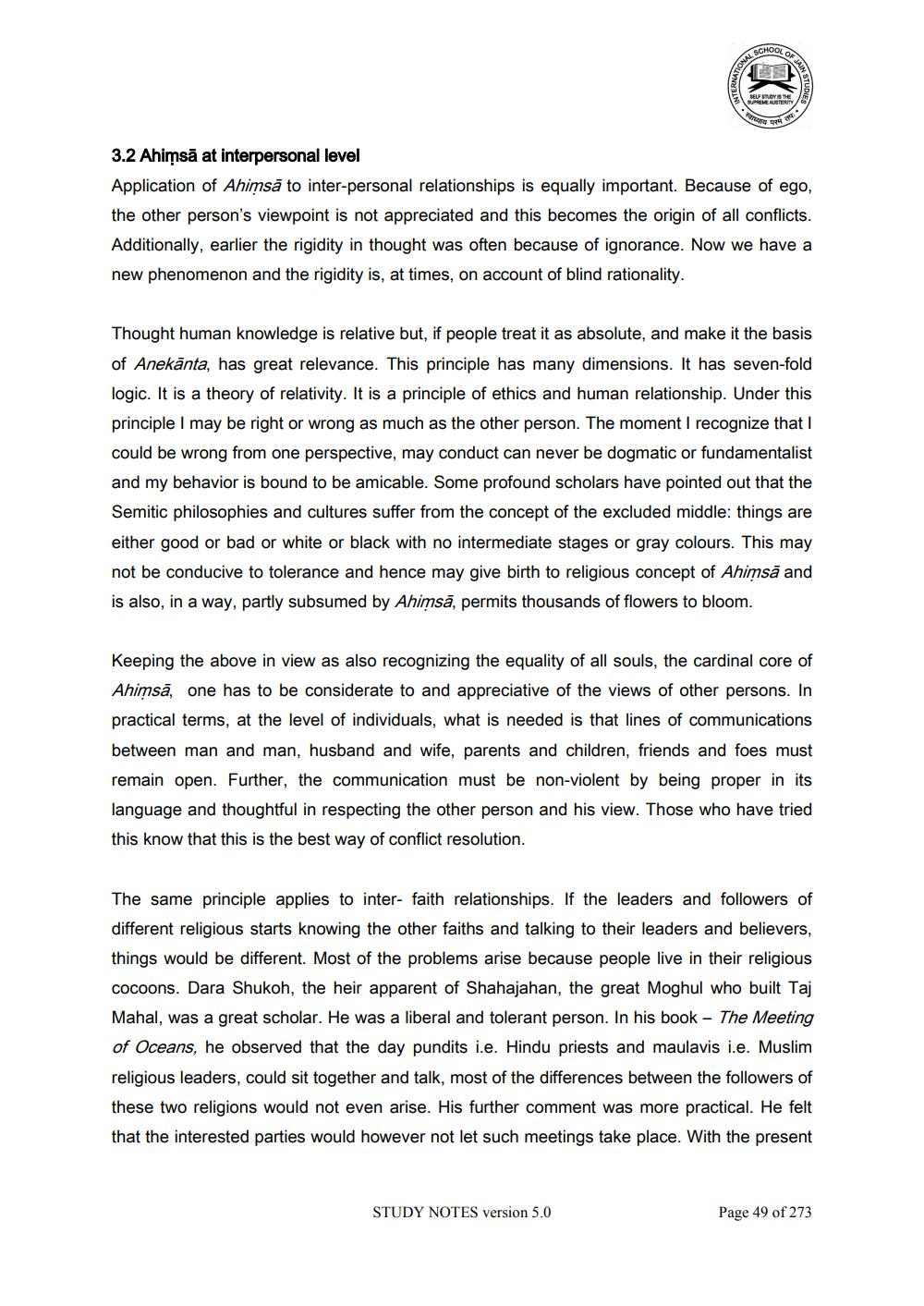________________
3.2 Ahimsā at interpersonal level Application of Ahimsā to inter-personal relationships is equally important. Because of ego, the other person's viewpoint is not appreciated and this becomes the origin of all conflicts. Additionally, earlier the rigidity in thought was often because of ignorance. Now we have a new phenomenon and the rigidity is, at times, on account of blind rationality.
Thought human knowledge is relative but, if people treat it as absolute, and make it the basis of Anekānta, has great relevance. This principle has many dimensions. It has seven-fold logic. It is a theory of relativity. It is a principle of ethics and human relationship. Under this principle I may be right or wrong as much as the other person. The moment I recognize that I could be wrong from one perspective, may conduct can never be dogmatic or fundamentalist and my behavior is bound to be amicable. Some profound scholars have pointed out that the Semitic philosophies and cultures suffer from the concept of the excluded middle: things are either good or bad or white or black with no intermediate stages or gray colours. This may not be conducive to tolerance and hence may give birth to religious concept of Ahimsā and is also, in a way, partly subsumed by Ahimsā, permits thousands of flowers to bloom.
Keeping the above in view as also recognizing the equality of all souls, the cardinal core of Ahimsā, one has to be considerate to and appreciative of the views of other persons. In practical terms, at the level of individuals, what is needed is that lines of communications between man and man, husband and wife, parents and children, friends and foes must remain open. Further, the communication must be non-violent by being proper in its language and thoughtful in respecting the other person and his view. Those who have tried this know that this is the best way of conflict resolution.
The same principle applies to inter- faith relationships. If the leaders and followers of different religious starts knowing the other faiths and talking to their leaders and believers, things would be different. Most of the problems arise because people live in their religious cocoons. Dara Shukoh, the heir apparent of Shahajahan, the great Moghul who built Taj Mahal, was a great scholar. He was a liberal and tolerant person. In his book - The Meeting of Oceans, he observed that the day pundits i.e. Hindu priests and maulavis i.e. Muslim religious leaders, could sit together and talk, most of the differences between the followers of these two religions would not even arise. His further comment was more practical. He felt that the interested parties would however not let such meetings take place. With the present
STUDY NOTES version 5.0
Page 49 of 273




